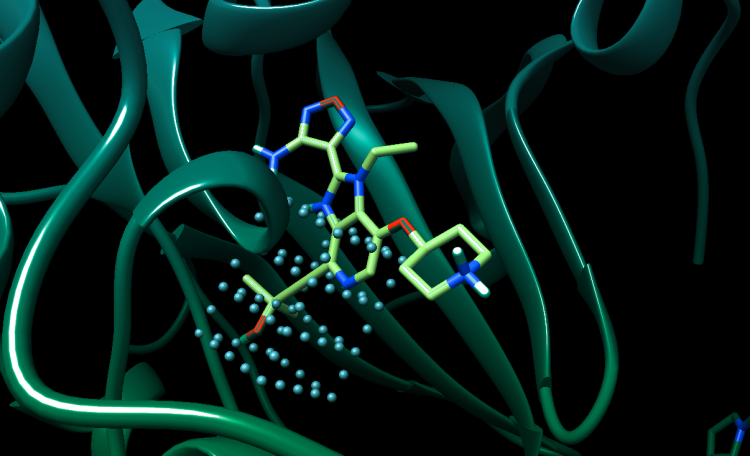Watch all the Transform 2020 sessions on-demand here.
Atomwise, which uses artificial intelligence (AI) to accelerate drug discovery for diseases like Ebola, multiple sclerosis, and leukemia, today announced the launch of its Artificial Intelligence Molecular Screen (AIMS) program. The program is free and open to any university-affiliated scientist in the U.S. or Canada who is supported by a principal investigator and has the means to test molecules.
“Our goal is to apply to healthcare the transformational performance that we’ve seen AI have in domains like self-driving cars, voice recognition, game playing, and language translation,” wrote Atomwise CEO Abraham Heifets, in an email to VentureBeat.
Since launching in 2012, Atomwise has partnered with several pharmaceutical groups and universities, including Merck, the Dana Farber Cancer Institute at Harvard University, the Scripps Research Institute at the University of San Diego, and the Indian Institute of Technology Bombay. Heifets claims to have projects with 27 labs that are either completed or in flight, and he now wants to open up his platform to others.
“We designed the AIMS program to support 100 collaborators this year, so it will be a significant increase in scale,” he wrote. To participate, candidates must submit their proposals by June 12, specifying which disease and protein they want to target. Atomwise will announce in September the 100 selected candidates who will benefit from AtomNet, a system powered by deep learning algorithms that screens millions of molecules per day. Once the screening is complete, the candidates will receive 72 custom-chosen molecules ready for testing. “Shipping 72 molecules typically takes 8 to 12 weeks,” wrote Heifets.
June 5th: The AI Audit in NYC
Join us next week in NYC to engage with top executive leaders, delving into strategies for auditing AI models to ensure fairness, optimal performance, and ethical compliance across diverse organizations. Secure your attendance for this exclusive invite-only event.
This may not seem like a big deal to a non-scientist, but for researchers, it’s huge, as the average drug takes up to 15 years and $2.5 billion to develop. The AIMS program can therefore save a lot of time and money. Of course, the National Institutes of Health (NIH) funds research, but President Trump’s proposal for the federal budget would cut nearly $6 billion from the NIH.
This isn’t the first time AI has been applied to health care, though. “IBM Watson has some overlap with our efforts, as does some research being published out of Google, and academic groups at universities including Stanford, UCSF, and the University of Pittsburgh,” wrote Heifets. “That said, the real competition for any of these AI approaches is the traditional way of doing things — test tubes, after all, have not substantively changed for the last 200 years. The burden is on all of us to show that we can materially improve the current drug discovery process.”
Atomwise is a graduate of Y Combinator’s Winter 2015 batch. It has raised $6.3 million to date from investors that include Data Collective, Khosla Ventures, DFJ, AME Cloud Ventures, Draper Associates, Y Combinator, and OS Fund.
The San Francisco-based startup currently has 10 employees.


